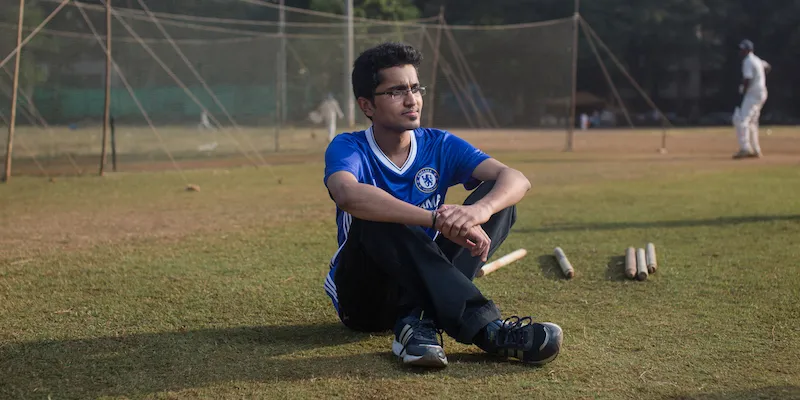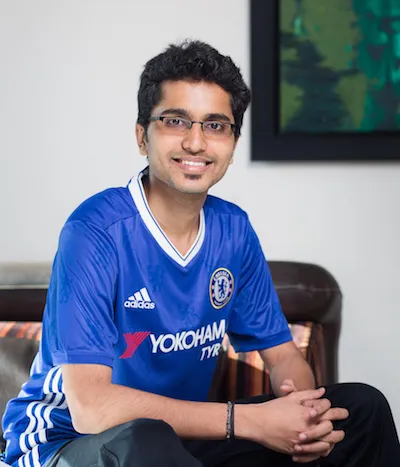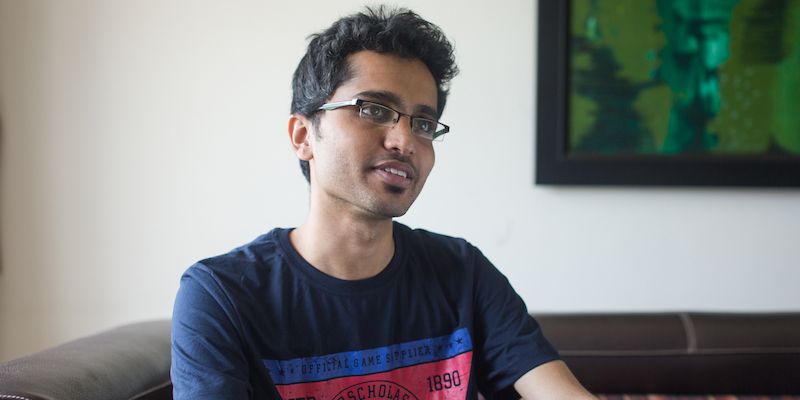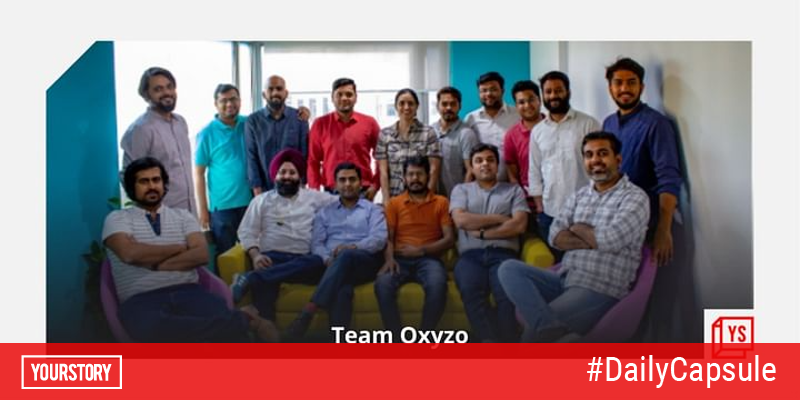Narendra Shetty now bats for life
This story is sponsored by HCG.
Diagnosed with Ewing’s sarcoma as a teen, this young main now aims to be a chartered accountant.
In 2005, Narendra Shetty came home after a particularly strenuous game of cricket with friends, and complained of pain in his leg. His mother put it down to the rough and tumble of teenaged boys playing. She applied some balm and both of them forgot about it. The following day, the pain returned while he was in school. It was so severe the mother took the 14-year-old to the family doctor, a general practitioner (GP), who prescribed painkillers and balms to ease the discomfort. When the pain persisted, he advised them to get an X-ray done at the earliest. No one was prepared for the result.
“The X-ray report showed that a part of my bone was missing. Imagine taking a bite out of an apple: that’s what my bone looked like,” says Narendra, now a healthy 26-year-old, and studying to be a chartered accountant.
The GP referred his case to a specialist who told them that he may have some type of osteosarcoma and that he should not delay treatment even for a moment.
“We had to call my father who was in Mangalore at the time. An MRI (magnetic resonance imaging) confirmed I had to go into surgery immediately,” he says.
However, as a boy just into his teens, Narendra was still not aware what his diagnosis signified. “My parents [chose to tell] me that the bone had eroded because of how active I was in sports, and I thought I was in for a small corrective surgery. They kept telling me I had injured myself because I kicked too hard during karate.”

When surgery was recommended, the Shetty family wanted a second opinion. The bone specialist referred them to a super specialist at Mumbai’s leading cancer care hospital.
“We met Dr. Manish Agarwal, an orthopaedic oncologist. He examined all the reports and, during the course of the consultation, said that even if it was cancer, they would not have to amputate my leg. That was the first time I heard the word cancer and realised what I had,” says Narendra.
The biopsy would confirm that it was Ewing’s sarcoma, rare type of bone and tissue cancer that mostly affects teenagers and children. Narendra admits he was stumped by the diagnosis. “Till then, I had only heard horrible stories about cancer and seen the movie, Anand. At the same time, I was not yet having any of the side effects one associates with cancer. Apart from the excruciating leg pain, everything else was fine. I remember being confused, thinking that if I have cancer, how come I’m okay? I started questioning the diagnosis. When I asked my parents why they didn’t tell me, they said it was because they didn’t want to frighten me.”
His treatment eventually stretched over a year and a particularly aggressive course was prescribed. “In Ewing’s sarcoma, they administer chemotherapy before surgery to shrink the tumour. During surgery, the affected part is replaced with an implant. Post-surgery, if any part of the tumour remains, they administer more chemotherapy.”
A particularly hard fallout was his being away from school. He had to forgo a year to focus on his treatment. “I was depressed because my friends were moving on to the next class and I would be left behind. For the first time, I felt sorry for myself.”

But the young teen did not have time to think about all this once the treatment started. The side effects started showing two days after his first round of chemotherapy. “I was nauseated, water tasted like metal and I had no appetite. I was throwing up almost everything I ate and my WBC (white blood cell) count dropped to 400.” [The average normal range for WBC is between 4,500 and 10,000 per microliter.]
He was frequently in a bad mood and would take his frustration out on his parents. To make matters worse, his surgeon, Dr. Agarwal, told him that post-surgery, he would never be able to play cricket or practise karate. “Although I was disappointed at the time, I did not know that he would go on to become the biggest hero of my life,” says Narendra. “He said I could take up indoor sports or even do some light dancing with my girlfriends. I was very angry and sad. But the surgery had to be done, and a stainless steel implant was put into my leg.”
He recalls celebrating his fifteenth birthday from his hospital bed. “I was given a walker and had to learn to walk all over again. I underwent extensive physiotherapy. I also had to start my post-operative chemotherapy. All the side effects came back and so did my frustrations over everything. It was Dr. Agarwal’s support that got me through this trying time. In addition to being an excellent surgeon, he really bonds with his young patients.”
A year passed, and with his treatment complete, it was time for Narendra to return to school. “I walked into a class with completely new faces as I was now studying with the junior batch because I lost a year. I must have looked like an alien. Although my side effects had subsided, my hair had not grown. I had also lost so much weight. Before the surgery, I was 37 kg but by the time I came back to school, I was only 29 kg. I became a prime target for bullying.”
The teachers had dinned into the students to be nice to him. While most were sensitive, there were some who teased him and called him names like langda (lame) because of his altered gait. “But I stayed strong because I knew this was a temporary phase. I continued to regain my strength and by the time I reached college the next year, I was taking the suburban trains by myself.”
He says he has been lucky to find jobs where he where his employers have been very understanding of his situation. “Most survivors find it very difficult to find employment. My bosses said that they were only interested in my abilities and not in my medical history.”
In 2012, he joined Ugam, a support group for childhood cancer survivors. This was a turning point in his life as he considers himself an introvert, “Talking to other survivors really helped me open up about my experience. I used to think that I was the only one to [endure this sort of suffering]. But today, I know that I am not alone and that there are others like me. And now, I want to take this message of strength and survival forward.”
If you have overcome cancer, or know someone who has, and can be an inspiration to others, log on to www.selfv.in to find out how to participate.







